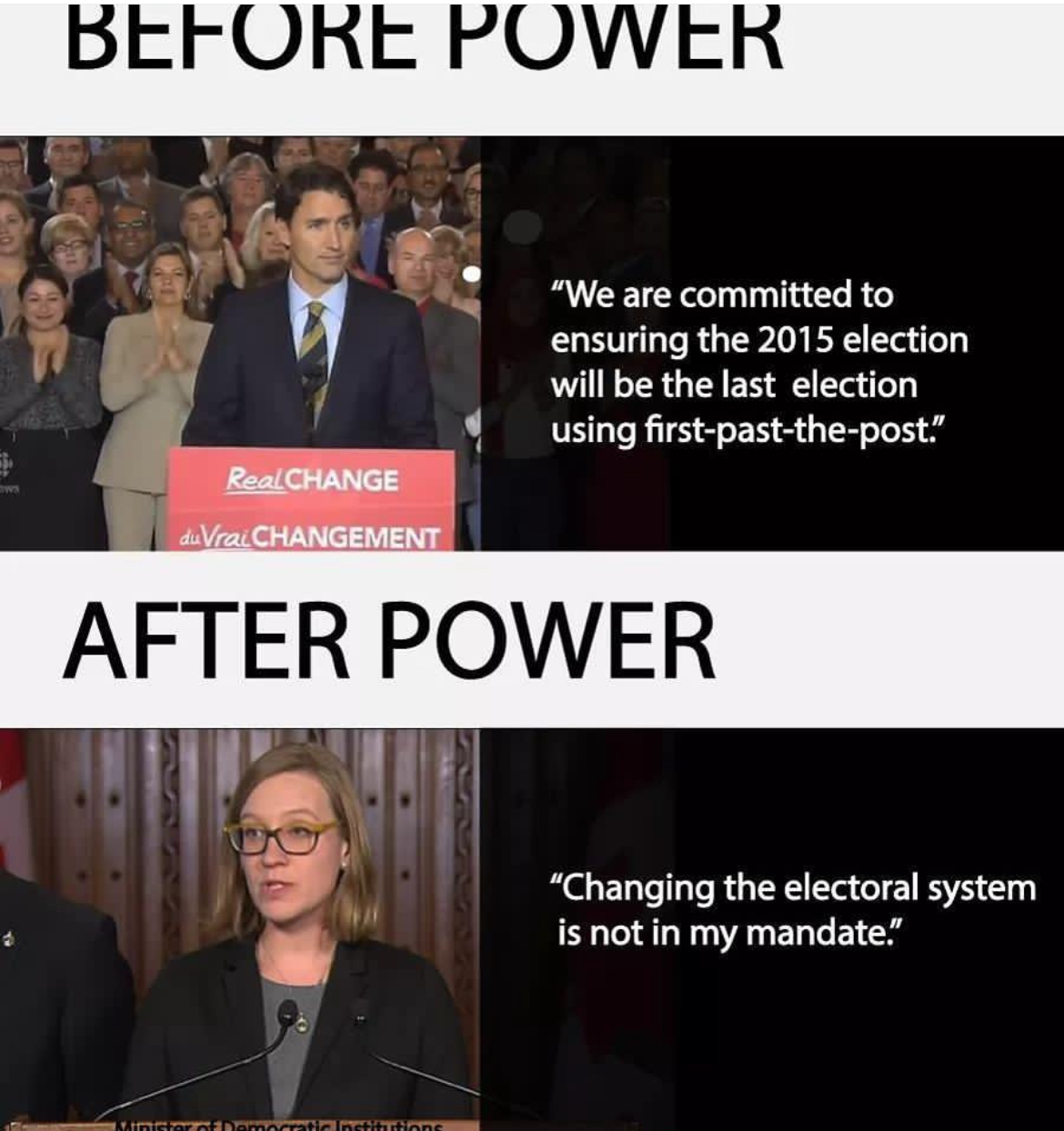Your continued cherry-picking of specific countries while ignoring the fundamental issue of democratic representation is telling.
First, electoral reform isn't just "my" pressing issue - 76% of Canadians support electoral reform. This overwhelming support exists because millions of citizens recognize their votes are systematically discarded under our current system.
As for Germany and Italy, you're mischaracterizing how PR functions in these countries. In Germany, the AfD has representation proportional to their actual support, while coalition dynamics have successfully kept them from power. Their support would exist under any electoral system - PR simply makes it visible rather than hidden within a mainstream party.
Meanwhile, PR countries like New Zealand, the Nordic nations, and many others consistently outperform FPTP countries on measures of economic equality, social welfare, and policy stability. Your selective examples ignore this broader evidence.
The core issue remains: in Ontario's last election, the PCs formed a "majority" government with just 43% of the vote. Under FPTP, 57% of voters who explicitly rejected them have no meaningful representation. How is this democratic?
What you call "dodging a bullet" is actually dodging democracy itself. A system where every vote contributes meaningfully to representation isn't a radical idea - it's a fundamental democratic principle. When you oppose this principle, what you're really saying is that some citizens deserve representation while others don't, based solely on where they live or who they support.
The mathematical reality is undeniable: PR produces governments that more accurately reflect how people actually vote. This isn't a minor technical detail - it's the entire purpose of representative democracy.


Remember when the Liberals also unveiled their plan to make the 2015 election be the last under FPTP?
collapsed inline media